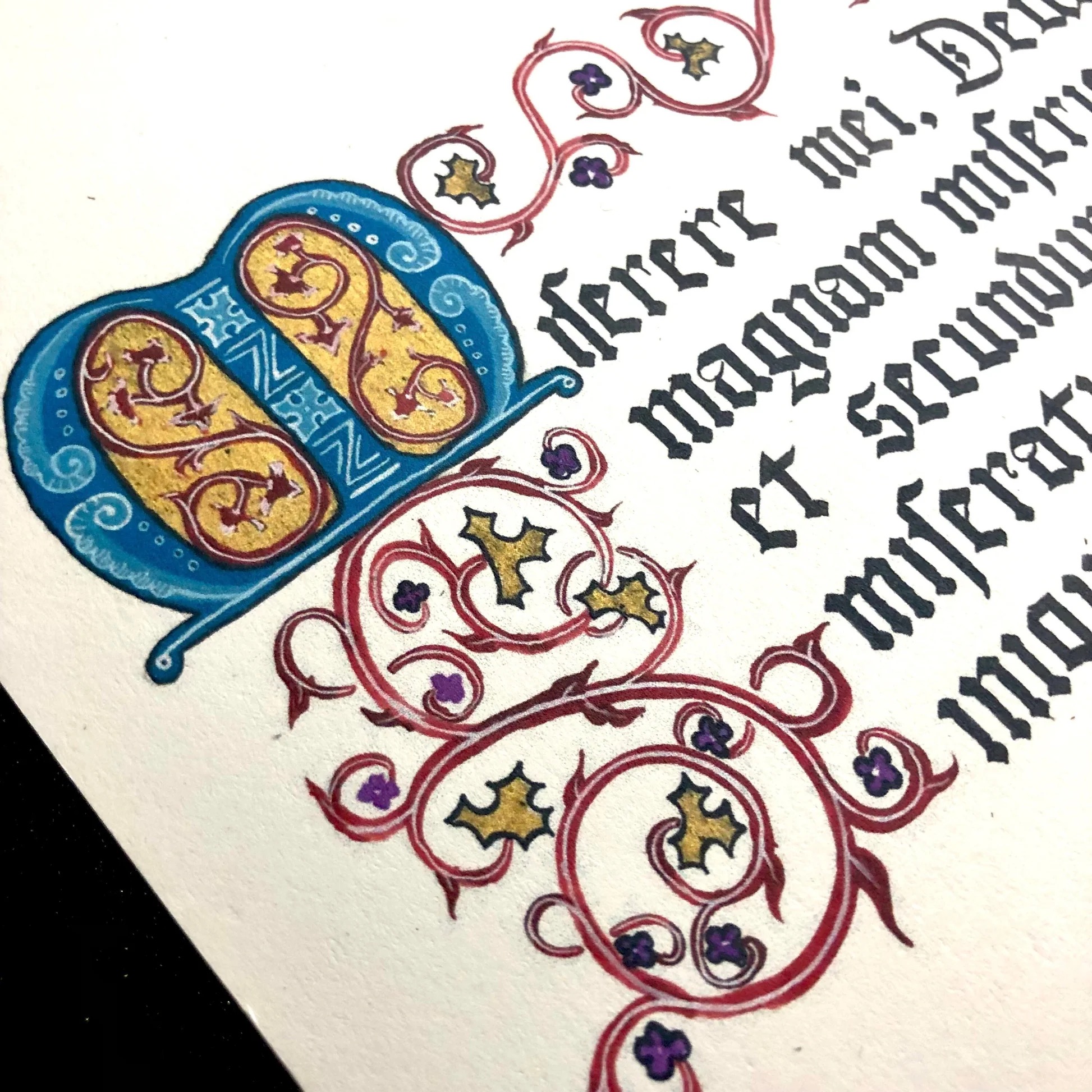Seeking God's Mercy

Dear friends,
Every Thursday morning, following the 6:30 am Eucharist, there is an opportunity at 7:00 am for Bible Study in the Church Hall. Last week the group discussed Psalm 51, which begins, “Have mercy on me, O God, according to your steadfast love.” Psalm 51 is known to Catholics as the Miserere: the Prayer of Repentance. It often appears as the psalm for Friday’s Morning Prayer office, which is the traditional day of penance, fasting and the remembrance of Christ’s crucifixion.
The writer of the psalm - perhaps King David - offers up a personal lament for his sin. The sin is not specified, although the psalm plaintively conveys the crushing burden of sin, along with a plea for mercy from God, to whom the psalm is addressed. The greatest fear of the psalmist is to be “cast away from your presence”. It illustrates the terrifying consequence of sin, which is separation from God.
However, the opposite can also be true. It is sin which makes us conscious of our need for God and, by doing so, brings us closer to him. Of course that’s not a reason to sin, but we are wise to acknowledge our ingrained selfishness and sinfulness. The psalmist writes, “Indeed, I was born guilty.” To know oneself is to be aware of one’s sin. The next step is to bring that sin before God. As the psalmist says, “You desire truth in the inward being.” Better to own up to every dark stain before God, however painful that may be, than to cover them up and resort to self-justification. “A broken and contrite heart, O God, you will not despise.”
It is clear in Psalm 51 that the author feels ashamed of what he has done. However, it is not all gloom and doom. The sin is balanced against God’s mercy. God has the power to “cleanse me from my sin.” As sin has impaired his relationship with God, the psalmist ardently desires God to put things right. “Create in me a clean heart, O God, and put a new and right spirit within me.”
Psalm 51 repays re-readings and, apart from verses 18 and 19, which were probably added at a later date, it is a perfect statement of lamentation, repentance and dependence. As I write down these words, I recall what Brother Mark, my first spiritual director, used to say to me. “What you need to learn is repentance and dependence on the Holy Spirit.”
In the less than one hour allocated for Bible Study, our group covered a lot of ground. Any discussion about the human condition necessarily takes in the subject of sin. It is embedded in the whole of our human story, from the Garden of Eden (disobeying God) to the Lord’s Prayer. “Forgive us our trespasses (sins), as we forgive those who sin against us.”
Thank God there is a remedy for sin! For the new Christian, that remedy is baptism, the sacrament which washes away sin. While that is a once-in-a-lifetime event, the repenting of sin is ongoing. The sinner - you and me - is always dependent on the love and grace of God for the “cleansing”. This is the “new life” to which we are called, where we make an honest reckoning with God for our misdeeds, so that through God’s mercy and forgiveness we may “hear joy and gladness.”
In Christ
Father David


0 Comments
There are no comments.
Stay Tuned
Sign-up for David's newsletter